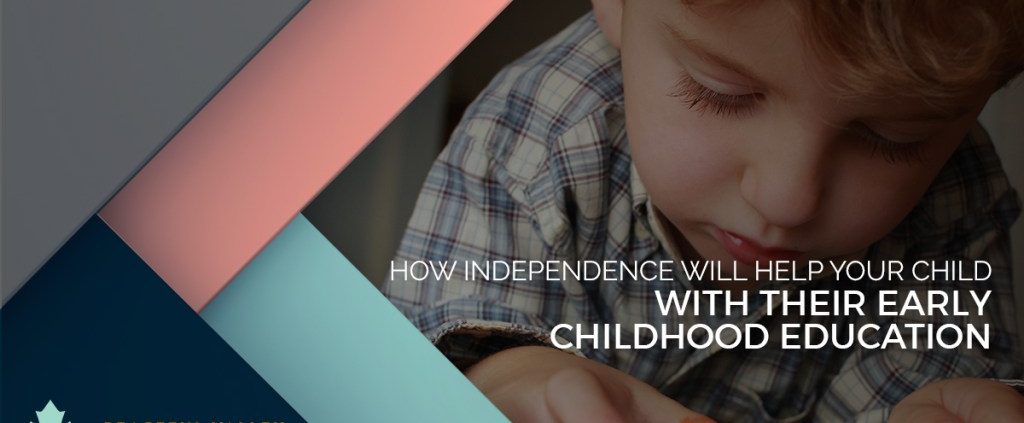Independence. It can be a thrilling and scary word. Having an “independent child” is often seen as a good thing, because it suggests a creative and free way of thinking. Of course, once the driver’s licenses is obtained, that kind of independence can be a difficult thing for parents to grant!
Here at Peaceful Valley Montessori Academy, you won’t be surprised that we’re big fans of independence. Let’s take a look at how it can facilitate your child’s learning.
THERE ARE SO MANY STYLES OF LEARNING
There’s not just one right way to do things. All you have to do is look at architecture to realize that the same task can be accomplished even though different designs and materials are used.
Because children all learn in different ways, they might not all use the same methods to perform tasks that are put in front of them. That’s a good thing, because the world needs thinkers of all types in order to solve the problems that exist. The important thing is that kids are exposed to various forms of learning during their early childhood education to find out the best ways that they can learn. Montessori teachers will help to alter the lessons so that each child can absorb the lessons as much as possible.
INDEPENDENCE MEANS WORKING WITH OTHERS
When we think of independence, we often think of lone wolfs, rebels, those who don’t play by society’s rules. While those people are sometimes helpful (and sometimes hurtful), the independence we like to focus on is independence from the teachers. Montessori preschools still encourage children to work together, independently from the constant interaction with teachers. Children who are part of the Montessori method during their early childhood education years often find themselves working independently but still able to work with others, both those who are like-minded and those who bring other attributes to the table.
INDEPENDENCE DOESN’T MEAN THEY DON’T NEED YOU
As parents, there’s no doubt that there are times when we want to be wanted. When a child has a bad day, we enjoy being the one they can run to. When they scrape a knee, we’re more than happy to help them bandage it.
Independence doesn’t mean that the child will be completely self-sufficient. It simply means that they’ll be able to be more flexible and deal with the simpler problems when they arise. It means working with you to cook a meal instead of just arriving when the food hits the table. Some day that independence will mean cooking their own meals, but for now it means having the attitude it takes to make those instant mashed potatoes with little adult intervention.
THEY WILL EVENTUALLY BE INDEPENDENT, ONE WAY OR THE OTHER
Here in America, there’s the running joke about kids who go to college and then move back in with parents when they can’t find a job. And while there certainly are boomerang children who are burdened with student loan debts and poor job markets, most of them still end up moving out by their late 20s. All that to say that 99.99 percent of children end up moving out and taking care of themselves.
Of course, how well they handle this independence, whether they are out of the house by 18 or by 30, can be influenced by how well they were taught independent learning during their early childhood education. Since virtually every child moves out, why not give them the best chance of thriving? Self-starters and independent thinkers are more likely to make the most of their schooling from preschool through college, and then succeed once they’re out in the world. Since they’re going to be independent eventually, help them “learn how to learn” by sending them to a Montessori school
If you’re looking for a way to make the most of your child’s mind and instill independence in them, perhaps Montessori education is what you’re looking for. If you’re interested in a tour of Peaceful Valley Montessori Academy, set up an appointment here.



Leave a Reply
Want to join the discussion?Feel free to contribute!